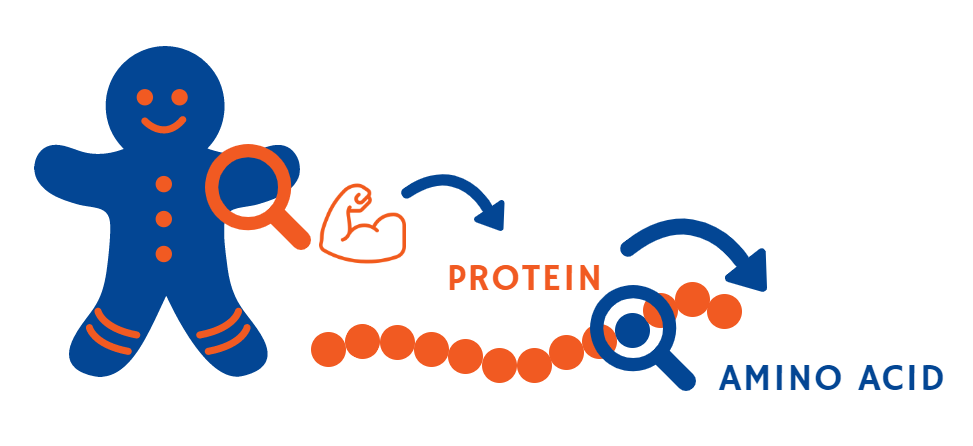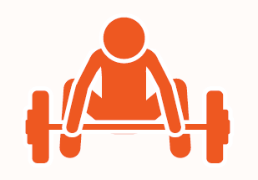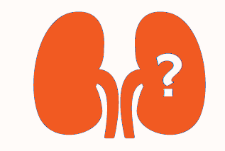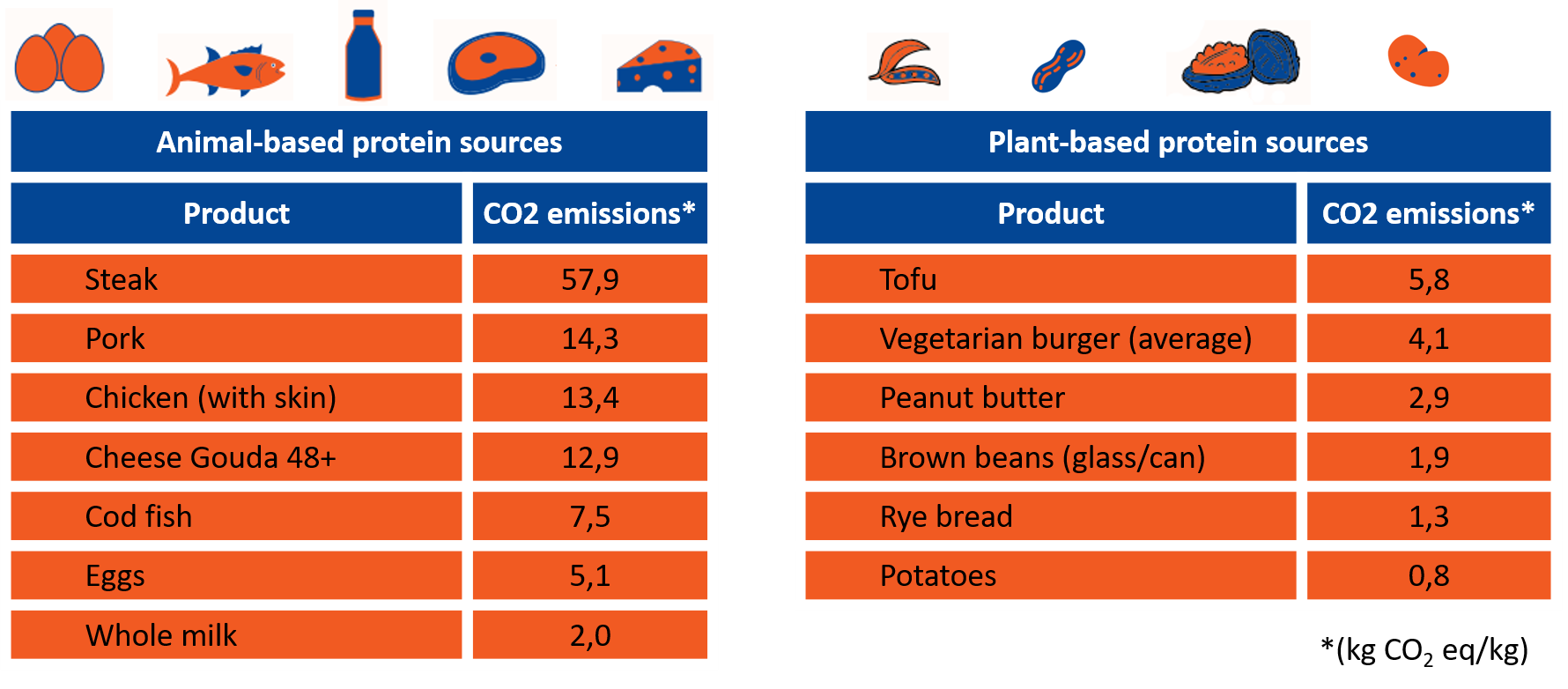Protein
Here protein plays a key role. From the age of 50, our body experiences a gradual decline of muscle mass, which we can limit by ensuring the proper protein intake on a daily basis and through regular exercise.
| What is a healthy diet? Please, see your national dietary guidelines for more information on healthy eating. |
When thinking about healthy food for healthy ageing, we think about fruits and vegetables, vitamins, healthy fats, and low salt. Protein does not cross our mind, but it is essential. |
|
Protein prevents your muscles and bones from losing their mass, which will help you to stay mobile, and to carry on an active and healthy life-style. A thorough assessment of your dietary intake by a dietitian is needed to determine whether you eat enough protein. |
Dietitians can assess your protein intake via the Protein Screener! |

All body tissues are made up of cells and all cells, for example muscles, organs, the nervous system, bones and blood, contain protein. After eating foods that contain proteins, the digestion breaks down the protein into amino acids (the building blocks of protein), which enter the blood stream. Amino acids are used in your muscles, bones, cartilage and skin, as well as to transport oxygen and other substances in the blood, to make enzymes and hormones, for an optimal functioning of your immune system and to recover from illness. Every day about 200-300 grams of our body protein is replaced using these amino acids. Only part of the amino acids that are necessary are recycled within your body: we also need proteins from our diet to provide new amino acids.
| Did you know that every 3 months your muscles are completely rebuilt again using amino acids? |
In Europe alone, over 20 million older citizens are at risk of protein energy malnutrition. They are at risk of being too skinny, and to lose body weight and muscle mass involuntary because their intake of energy and protein through diet is insufficient or the energy and protein consumed cannot be used by the body due to intestinal problems (e.g. diarrhoea). The consequences on health are serious and sometimes irreversible. Between 13.5 and 29.7% of older adults living at home (known as “community dwelling”) is malnourished and this risk increases when they live alone or receive home care.
Daily sedentary time (the time you sit or lie down during waking hours) and physical activity time (the time you move around or do exercise) are also very relevant for active and healthy ageing. Your muscles remain strong when they are being used! Sarcopenia, the progressive loss of muscle strength at older age, is a threat leading to disability, falls, and hospitalisation. Protein malnutrition may increase the risk of sarcopenia, again highlighting the importance of a healthy diet.
What happens if you eat too little protein?

|
A low protein intake will have negative consequences for your health and functioning. For example, your muscle mass will decline, leading to a loss of muscle strength. |
|
The PROMISS research suggests that older adults with a poor appetite report a different dietary intake pattern and eat lower amounts of protein compared to those with very good appetite, and that older adults with a lower protein intake are at greater risk of developing mobility limitations. |
Access here all PROMISS scientific publications |
Read about our field-site study |
The PROMISS project brings further scientific evidence on proteins, and its results inform the conceptualisation of food products, food master classes and policy recommendations, all aiming to optimize active and healthy ageing. |
|||
| I’m a researcher |
and want to know more! |
The proteins present in food differ with regard to their quality. The quality mainly depends on the amino acids present in the protein. In total, there are 22 different amino acids, and 9 of them are essential: they can only be obtained through food. 6 of them are semi-essential, generally present in food, but under specific circumstances (diseases, disorders) a sufficient intake through food is necessary. And 7 are non-essential amino acids, they are present in food but the body itself can also produce these amino acids.
Almost all proteins contain essential amino acids. However, plant-based proteins generally contain less essential amino acids compared to animal-based proteins. For example, pulses alone do not contain all essential amino acids, but when combined with grains all essential amino acids will be covered.
Older persons need to eat 0.8 grams of protein per kilogram body weight per day (source: the European Food Safety Authority). This means that a person with a body weight of 60 kilogram would need about 48 grams of protein per day, every day.

Recently, some European geriatricians and nutritional experts bring evidence that healthy older persons would need 1.0-1.2 grams of protein per kilogram of body weight. Older persons with acute and chronic diseases should have an intake of 1.2-1.5 gram of protein per kilogram body weight.
In PROMISS, we are investigating whether a higher protein intake would be more optimal for older persons.
| I’m a researcher and want to know more! |
I want to participate in the study! |
Research, including PROMISS research, shows that a substantial part of older adults has a protein intake below the current recommendation of 0.8 grams of protein per kilogram body weight per day. These older adults are at higher risk of protein energy malnutrition and at higher risk of losing muscle mass and muscle strength.
The protein research in PROMISS not only deepens the knowledge into the role of protein in active and healthy aging, but also how protein may influence the microbiome of the mouth and gut and appetite.
PROMISS results will be translated into recommendations for health professionals, in particular dieticians and geriatricians, thus contributing to preventing malnutrition among older persons living at home. Also, practical advice for older adults themselves will be made available to improve their diet.
| I’m a health professional and want to know more! |
Dietitians can assess your protein intake via the Protein Screener! |
Access here all PROMISS scientific publications |
Is it harmful to eat too much protein?

|
In general, eating more protein than needed is not harmful. Only older persons with severe kidney diseases should avoid a high protein intake. Always talk to your general practitioner when you are in doubt. |
| Do you follow a vegetarian diet (You eat no meat or fish, but you do eat dairy and eggs)? To ensure that your body receives all the amino acids that it needs through your diet, vegetarians are advised to eat about 20% more protein per day than the current recommendation. |
Do you follow a vegan diet? (You only eat plant-based food products)? ensure that your body receives all the amino acids that it needs through your diet, vegans are advised to eat about 30% more protein per day than the current recommendation. |
Almost all food products contain naturally some protein. Protein can be found in animal-based food products such as meat, poultry, fish, eggs, dairy products and cheese. However, protein is also present in plant-based food products, such as legumes and pulses, bread, cereals, pasta and rice, nuts and mushrooms. Older adults generally obtain most of their protein from meat, dairy and grain products such as bread.
These are some examples of food items with amounts that contain about 10 grams of protein:

Eating regular food products rich in protein (see list above) is a perfect way to consume sufficient protein per day. Some of these food products are cheap sources of protein.
When appetite is low, older adults may benefit from selecting products that are protein enriched, such as certain types of milk products, drinks or specially developed ready-to-eat meals. A dietician may help you to pick the right food products for you.
PROMISS develops new food concepts and food products for older adults that are rich in protein or protein enriched. These type of food products might make it easier for older adults to increase their protein intake, especially when appetite is poor.
PROMISS is developing a roadmap and will give masterclasses in order to support SMEs and food industry to adapt or develop new innovative products high in protein.
I am working in
the food industry and
want to know more!

|
In order to keep our planet a healthy planet, we preferably have to produce and eat food products that are of low environmental burden (e.g. low in CO2 emission rates, low in fuel use, and low in land use). |
Pick the right food products when you shop and lower your environmental foot print!
In general, animal-based protein sources have a higher environmental burden than plant-based protein sources.

| Do you follow a vegetarian diet (You eat no meat or fish, but you do eat dairy and eggs)? To ensure that your body receives all the amino acids that it needs through your diet, vegetarians are advised to eat about 20% more protein per day than the current recommendation. |
Do you follow a vegan diet? (You only eat plant-based food products)? ensure that your body receives all the amino acids that it needs through your diet, vegans are advised to eat about 30% more protein per day than the current recommendation. |
The PROMISS WP8 long-term (cost)effectiveness study has concluded recruitment for the randomised controlled multi-trial in the Netherlands and in Finland, reaching out to participants aged 65+ with a low protein intake (<1.0g/kg body weight). The final physical follow-up measurements are expected to be conducted by the end of July 2020.
Researchers have investigated the changes in physical function, muscle strength, frailty status, body weight and composition, malnutrition, health care costs and quality of life.
We would like to thank all Dutch and Finnish volunteers for their participation!